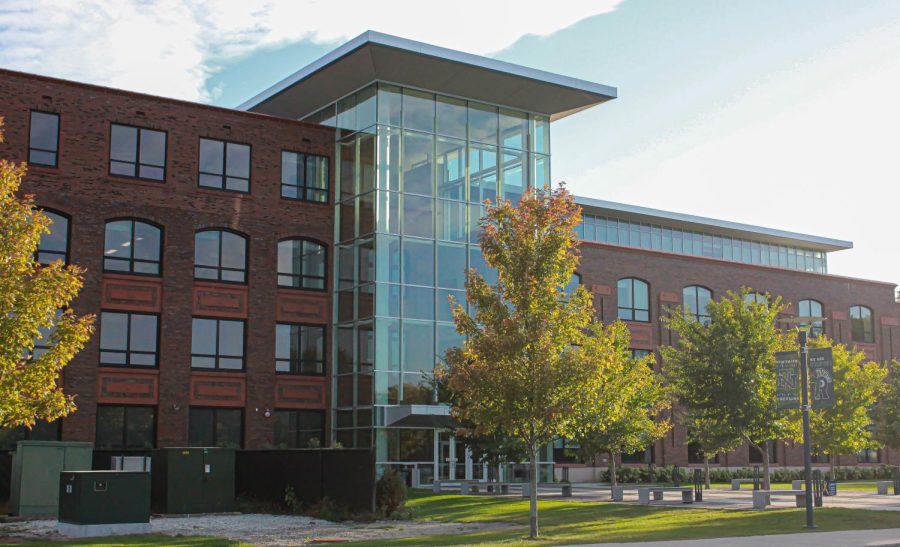It’s National Eating Disorder Week
The Social work department’s support for children goes above and beyond
Meyer
Student Assistance Program Coordinator, Ms. Susan Antonini, said that all students are welcome in room 027 to receive support.
New Trier highlighted National Eating Disorder Awareness week (February 20-26) by offering personal and school wide support. With eating disorders being the direct cause of 10,200 deaths each year (one death every 52 minutes), New Trier acknowledges that school support is necessary.
The social work department helps students with eating disorders including anorexia nervosa, bulimia, binge eating disorder, ARVID, OSFED.
Student Assistance Program Coordinator, Ms. Susan Antonini, said that all students are welcome in room 027 to receive support. Eating disorders are often paired with shame and self-isolation, so Antonini tries to debunk this message.
She says, “Leave your blame and shame at the door.”
The school’s support stretches wider than just supervised lunches and talking sessions in the building. Student Assistance Program Liaison Kris Hummel says social workers collaborate with a student’s entire support system, setting them up for the most consistent recovery. This includes family based therapists, nutritionists, treatment teams, doctors, the advisor chair, and school nurses.
Michelle, a 2022 New Trier graduate, spoke about her experience recovering from an eating disorder with help from the social work team.
“The support I received from school my senior year was instrumental to my recovery—supervised lunches, weekly check-ins with social work, communication with my treatment team, and flexibility with schoolwork were just a few ways I was supported.”
Along with individual attention, Antonini and Hummel are planning an eating disorder recovery group for students to meet and talk about their experiences. This group was originally intended to start at the beginning of the school year, but was difficult to get students to join, said Hummel.
Many people prefer to keep their eating disorders private, so walking into a labeled support group of students can be daunting and too public.
When the Support group begins in March, Antonini and Hummel hope to help students overcome these initial challenges in order to build a space to relate with others.
With a spike in eating disorders due to Covid over the past several years, the need for this support group is urgent.
Hummel said that the world felt out of control makes it more likely for individuals to use food as a source of control. Social media was another huge factor, she said.
“It leads you down rabbit holes. Even on my feed, having many things blocked, posts were popping up about topics like weight loss. It was really interesting how quickly the algorithms took over,” says Hummel.
Social media placed a lot of attention on food and workouts, making posts such as “What I Eat in a Day,” a long-term and popular trend. This made it easy for teenagers to fall into obsessions relating to food, weight, and body image.
As a response to the spike in eating disorders, Antonini and Hummel began multiple projects.
Hummel says, “Last year we brought in two individuals from an agency that does family-based treatment to speak to our staff. Support staff all the way to our faculty was there. We got to learn what we can do as a school and then what everyone specifically can do in their practice that can be helpful.”
Starting with staff was crucial to ensure that adults in the building were educated and able to send healthy messages to their students.
They also worked heavily with the Kinetic Wellness department since their curriculum aligns with topics relating to health.
“We talked to agencies about what the best practices are in educating around eating disorders, nutrition, all the different topics that come up as part of our state standards. We want to make sure there’s no triggering language,” Hummel explains.
All of their work, whether it be direct or indirect support, is to allow students to live free from an eating disorder and unhealthy obsessions. They strive to prepare for a healthy and successful future.
“My dream is that when students eventually leave the school, they are as empowered as they can possibly be,” said Antonini.







































